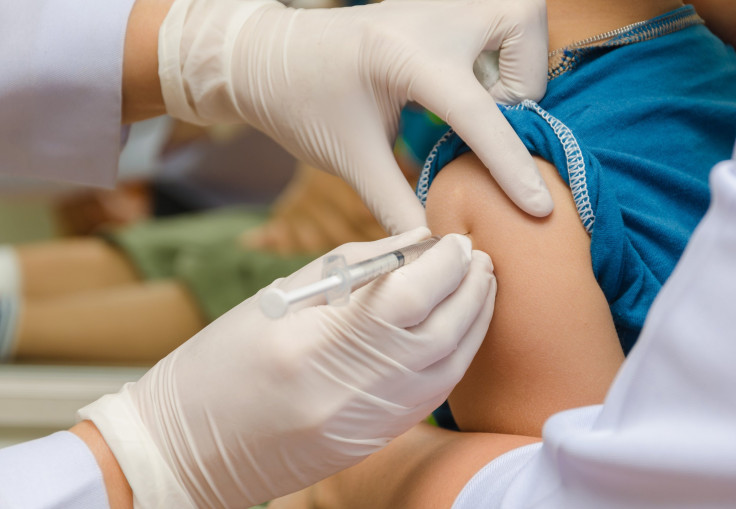Meningococcal Vaccine Gets FDA Approval: A Game Changer In Fighting The Disease

The Food and Drug Administration (FDA) recently approved a new vaccine that targets serogroup B meningococcal disease — a strain of the disease that had previously evaded vaccination in the U.S. The vaccine, called Bexsero, can be administered to people between the ages of 10 and 25.
“With today’s approval of Bexsero, the U.S. now has two vaccines for the prevention of serogroup B meningococcal disease,” said Dr. Karen Midthun, director of the FDA’s Center for Biologics Evaluation and Research, in a news release. “The approval of these vaccines represents a major public health accomplishment toward preventing this life-threatening disease.”
This is the second vaccine recently approved by the FDA to fight serogroup B meningococcal disease; the other one was approved in October 2014. Before these vaccines were approved, the only other meningococcal vaccines in the U.S. treated four of the five main serogroups: A, C, Y, and W.
According to the Centers for Disease Control and Prevention (CDC), meningococcal disease refers to any sickness caused by a certain type of bacteria known as Neisseria meningitidis, also simply known as meningococcus. Meningococcal disease typically involves infections of the meninges (the lining around the brain and spinal cord), and/or infections of the bloodstream, which lead to sepsis. Meningococcus bacteria are spread through saliva, including kissing or coughing on one another. Symptoms include fever, severe headache, an extremely stiff neck, vomiting, rash, and confusion.
The largest outbreaks of meningococcal disease typically occur in a swath of sub-Saharan Africa called the “meningitis belt,” according to the World Health Organization (WHO). This belt stretches from Senegal to Ethiopia, and can be home to meningococcal outbreaks due to the dust winds, cold nights, and upper respiratory infections common during the dry season from December to June. While the close living quarters and poor sanitation of developing countries can foster such infections, the U.S. isn’t immune to them either. In 2013, several meningitis outbreaks struck college campuses in the U.S., including Princeton University and the University of California, Santa Barbara.
If an unvaccinated person contracts meningococcal disease, they can be treated with antibiotics like penicillin, ampicillin, chloramphenicol, and ceftriaxone. While this may prevent the risk of death or other severe long-term complications, antibiotics don’t always work, and the disease can be potentially fatal. “Vaccination is the most effective way to prevent meningococcal disease,” the FDA states in the news release. This is why Bexsero is seen as a game changer; previous vaccines covering the serogroup B strain of meningococcal disease weren't available in the U.S.
The FDA conducted three studies on the vaccine before approving it. It tested the vaccine in around 2,600 adolescents and young adults throughout Canada, Australia, Chile, and the UK. It found that after two doses of Bexsero, 62 to 88 percent of the participants had antibodies in their blood that destroyed three different serogroup B strains of N. meningitidis. While there were some side effects of Bexsero reported, such as headache, diarrhea, muscle pain, joint pain, and fatigue, overall it proved to be an effective way to prevent young people from these strains of the bacteria.
The FDA notes that the vaccine was quickly approved due to a special expedited process that allows new therapies to move more quickly through the regulatory process to become available to the public. This happened because the meningitis outbreaks at the college campuses made it far more pressing to develop a vaccine for these strains of the disease.
Published by Medicaldaily.com



























